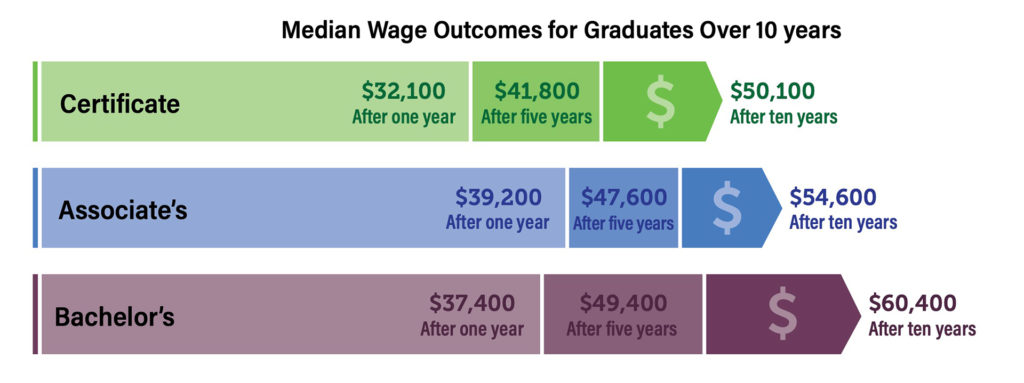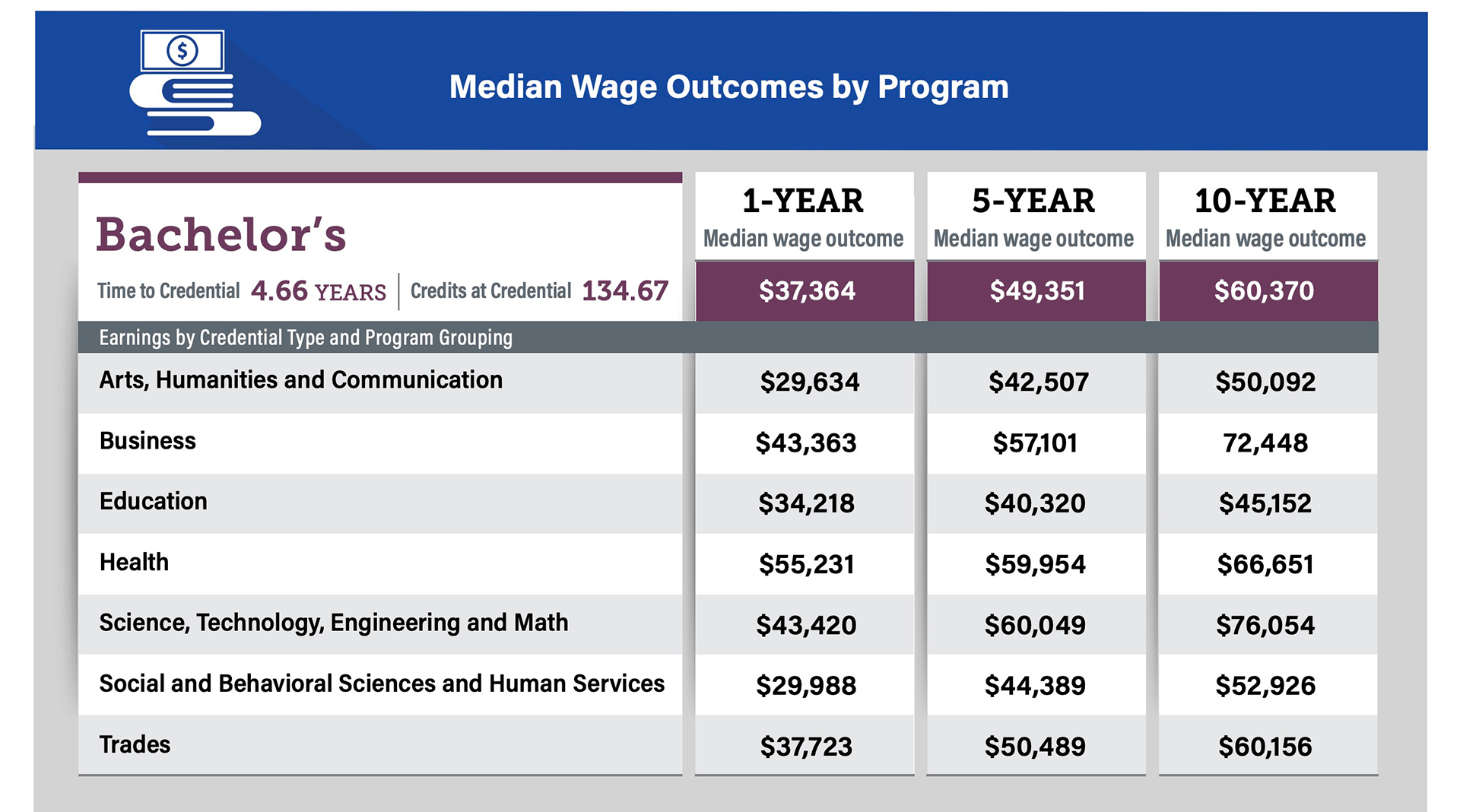
A new CDHE report finds earning a postsecondary credential can positively impact the lives of students and improve Colorado’s society broadly.
Investing in college delivers a substantial return on the investment. Many students at Colorado State University see that ROI first hand, and a new study by the Colorado Department of Higher Education compiles data that strengthens the case for the ROI of higher education.
Students who graduate from CSU are seeing greater success completing a degree, earn more than those without a degree, and carry, on average, less student loan debt than their collegiate peers across the country. The CDHE report released June 30, Colorado Rises: Maximizing Value for Students and Our State, draws the conclusion that despite the cost of tuition, “earning a postsecondary credential can positively impact the lives of students and improve Colorado’s society broadly,” the authors of the report write, adding that increased wages among postsecondary graduates enhance Colorado’s labor market, which provides more opportunities to support families across the state.

Graphic credit: Colorado Department of Higher Education
“Bottom line: Education will build up your life, and higher ed is worth the investment for students and Colorado,” said Tony Frank, chancellor of the CSU System. “Colorado students have less debt than the national average and get great ROI for their education dollar. Thanks to Gov. Polis and CDHE for their analysis.”
The report notes that “improving access [to higher education] is vitally important in our advanced economy,” something that CSU President Joyce McConnell says aligns with CSU’s mission to provide access to higher education to anyone with the motivation and ability to earn a degree.
“After 150 years as the land grant institution in the state, CSU positively impacts the Colorado economy in many ways,” said McConnell. “One notable example of which I am very proud is the fact that one out of every 25 Colorado workers holds a CSU degree.”

Graphic credit: Colorado Department of Higher Education
The report also breaks down ROI for two-year institutions and certificate programs by looking at wage data for graduates across a range of degree types and subject areas. The analysis gives extra attention to the effect that factors such as tuition price, debt, choice, and value have on a student’s overall trajectory.
“We know going to college or technical school is a weighty decision for students and families,” said Gov. Jared Polis. “The robust data shows that it’s worth it! Knowing how much you are likely to earn helps Coloradans choose the right education pathway that harnesses their unique talent and aptitudes. It also helps us hold ourselves accountable as we look to reduce costs and increase the value of higher education.”
“We know going to college or technical school is a weighty decision for students and families. The robust data shows that it’s worth it!”
— Gov. Jared Polis
At CSU, institutional financial aid has increased more than 80% in the last five years, and average student debt loads at graduation hold steady at around $25,000, below the national and state average. CSU students are graduating faster than just five years ago, which saves them tuition dollars and allows them to enter the workforce sooner. Our six-year graduation rate last year increased from 68% to 71%.
The report indicates what while average college tuition has increased since the recession, 72% of students at four-year universities receive a mix of federal, state, and institutional aid that enables students from low- and middle-income families to attend for lower cost, and in some cases tuition-free.
In addition, the proportion of Colorado undergraduate students who take on debt, and the average amount of that debt, has leveled off at four-year colleges. Countering national trends, just 10% of Colorado undergraduate students at four-year institutions took on more than $40,000 in debt.
“Our institutions have found creative ways to save students money on tuition and boost the value of their education,” said Dr. Angie Paccione, executive director of CDHE. “We’re working hard to knock down barriers so all can reap the benefits of earning a postsecondary credential.”